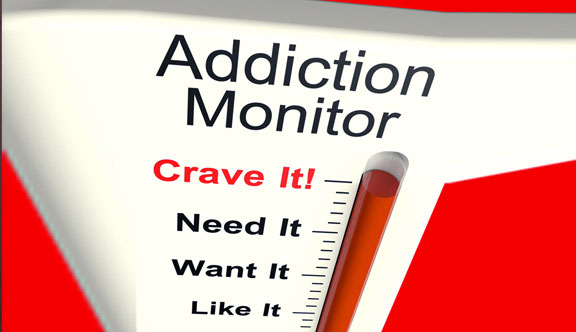Do You Have a Food Addiction?
I know someone that seeks comfort in food. Me, you and just about everyone else I know. Food is delicious, right? Especially around the holiday season! Many of us find ourselves “decompressing,” with food at the end of a long, work day. It helps us relax, unwind, and forget about all of our worries!
Some foods really “hit” the spot. However, “needing a bowl of ice cream” or “having to eat a cookie” (when you’re not even hungry) suggests there may be an underlying problem. What would happen if you denied yourself of the food you are craving? Would you crumble to the ground, no longer be able to function, shut down? Most likely not, but you will have to deal with some unpleasant emotions such as anxiety, anger, fear, sadness, guilt, and shame.
Food addiction has more to do with how a person behaves around food, what they think about food, and the way habits are formed with food. The habits are the real source of the addiction.
Eating Our Emotions
When we use food as a means to cope with our emotions, the body becomes conditioned to crave that process to feel relief. This, my friends, can result in a food addiction.
People often associate food with pleasure. Do you remember at a young age being “treated” or “rewarded” with ice cream or candy for good behavior? Research has shown that the reward centers of the brain light up and release dopamine when pleasurable foods are consumed. Could it be that we’ve conditioned our bodies to react this way?
Someone doesn’t just choose to feel out of control with food! It’s often a slippery slope that seems to have no end. Below are some signs and symptoms that can help you determine if you have a food addiction:
• Changes in mood
• Labeling food as “good” and “bad”
• Restrictive dieting
• Eating in secret or sneaking food
• Feeling out of control with food
• Rewarding/treating yourself with food
• Thinking about food all the time
• Feeling unsatisfied even after meal times
• Weight fluctuations and/or difficulty managing weight
• Body dissatisfaction
• Feeling disgusted, guilty or upset after eating
• Eating to escape painful feelings
Taking the power back from food often requires several phases in order to make a full recovery. Here are a few steps that can be taken to help someone who is recovering from a food addiction:
1. Develop a Healthy Relationship with Food
In traditional 12-step addiction-based recovery programs, addicts are challenged to remain abstinent. However, you just can’t avoid food! Food is essential for life! Someone suffering with a food addiction must learn how to eat properly again by establishing a healthy relationship with food.
2. Set Boundaries with Unsafe Food
Typically, trigger or “unsafe” foods are removed from the diet and boundaries are set so that managing these foods in a healthier way can be relearned. If you are someone who binges on cookies when you are stressed, it’s best not to keep them in the house. Eliminating the temptation until you are able to eat them again in a healthy way is a good idea.
3. Follow a Structured Meal Plan
A person suffering from an unhealthy relationship with food can get back on the right track to recovery by following a meal plan that has a structured eating pattern. This helps the person set safe boundaries with food, and feel satisfied so that there is not a physiological need to eat.
4. Learn Healthy Coping Strategies
Address the reasons why you turn to food to cope. Identify healthier coping mechanisms and strategies so that you can begin learning healthier means of dealing with your emotions. Try doing something that offers comfort in a non-food way such as taking a bath, going to the gym, reading a book, or meeting a friend for coffee.
5. Seek Professional Advice
Beating a food addiction isn’t something that happens overnight. It often involves a registered dietitian or licensed therapist that specializes in the area of disordered eating. These professionals will help a person break the cycle of compulsive overeating by implementing appropriate strategies, providing accountability, and giving sound advice.
Another tip to get away from seeking comfort in food is to “clean up your life.” Resolve issues. Get rid of friendships that are toxic. Get rid of clothes that you don’t like. Apologize to someone. Quit your job and find something that makes you happy. End a relationship if it’s not serving your highest good. Stop wasting so much time _______ (fill in the blank). The happier you become the more gratitude you practice, the more true comfort you engage in, and the less you will rely on food to make yourself feel good.
In Conclusion:
When you change your relationship with food you change the way you look at it. Interestingly, you will find that when you surround yourself with things that give you true satisfaction and comfort you will not seek comfort in food. Good luck to you!
I have been a personal trainer for over seventeen years and I absolutely love what I do. I honestly feel that I have one of the best jobs out there! The most rewarding part of my profession is helping one of my clients succeed at reaching their personal fitness goals. Making a difference in someone’s life makes it all worthwhile. I am currently certified by the National Sports Conditioning Association, Apex Fitness Group, and the International Sports Science Association.










